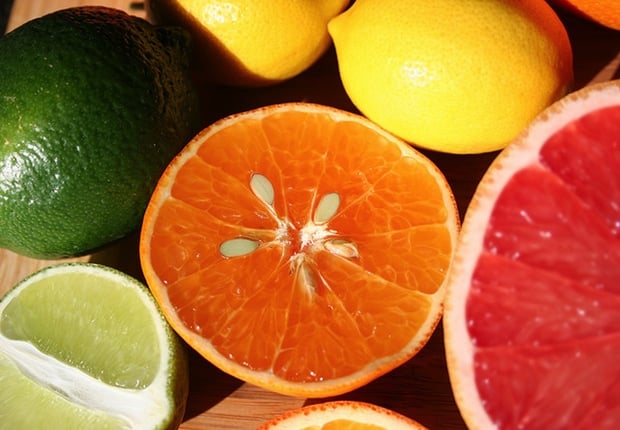A healthy, energized lifestyle typically requires a good night’s rest, exercise, and a balanced diet. But sometimes you just need a little extra something to fight off those drooping eyes or improve an emotional funk. While getting more sleep and consuming caffeine and foods that give us a natural energy boost are common solutions, bright colors, certain scents, and even just a break from your laptop can also zap away lethargic moments.
Here are eight ways to recharge and keep your mind fresh and attentive throughout the day.
1) Re-energize with peppermint and citrus scents.
Peppermint and citrus fragrances are known to stimulate the brain’s limbic system, which controls emotion, long-term memory, and behavior, says aromatherapist Izabella Tabarovsky. When mice were injected with peppermint oil in a study conducted by Japan’s National Institute for Environmental Studies, the animals became more active than mice injected with olive oil. Smelling citrus scents also proved to be more effective in treating patients with depression, according to a study conducted by the Mie University School of Medicine in Japan.
2) Listen to music to concentrate.
If you find yourself dozing off at your desk, turn on some tunes. A Stanford University study suggests that music improves our ability to concentrate. Using an MRI to scan brain activity, researchers found that harmonious sounds help the mind organize incoming information from chaotic surroundings.
3) Rehydrate with coconut water.
Dehydration is a sure sign of exhaustion, so drinking water throughout the day can defeat fatigue. But if you’ve lost a lot of water through sweating, especially as the days get warmer, you need to replenish your electrolytes. Instead of reaching for a sugary energy drink, consume a more natural alternative: coconut water. It’s packed with electrolytes that revive energy.
4) Add color to your wardrobe and home decor.
There’s something to be said about using bright colors as mood enhancers. Leatrice Eiseman, Pantone Color Institute executive director and author of More Alive With Color, says wearing warm colors such as red, yellow, and orange can bring out an adrenaline rush and help you beat your usual morning grogginess. The University of Rochester also conducted research proving that when people see red, they become faster and more forceful in their activities. Stay away from cooling tones such as green, blue, indigo, and violet if your energy is really lagging.
5) Get a splash of sunshine.
Light is a powerful source of energy for all living things. As spring ushers in more radiant days, local personal trainer Ana Browne of AnaBells Fitness recommends getting out of your windowless office or at least opening the blinds during the day to let a few rays into your system. “Being in a dark environment will send signals to your brain telling it that it’s downtime,” she says. Another option is to invest in a light therapy lamp to blast away the blues.
6) Walk for ten minutes.
The more you walk, the happier and more energetic you’ll feel, according to a study conducted at California State University, Long Beach. Going for a ten-minute walk left participants with an energy boost up to two hours later, whereas energy from a candy bar only lasted for one hour.
7) Take a technology break.
Laptops, smartphones and iPads help us connect with the world, but “all of the demands in modern society can be very draining,” says health coach Elise Museles of Kale & Chocolate. It’s good to be aware, but sometimes it can be a tech overload. So at the very least, shut off your smartphone while you take a lunch break.
8) Meditate.
While yoga enthusiasts swear by its calming abilities, scientific studies have also shown that meditation improves levels of attention. Meditators from a local Buddhist center in the United Kingdom performed significantly better on tests than students and professionals, according to research conducted by Liverpool John Moores University’s School of Psychology.



















